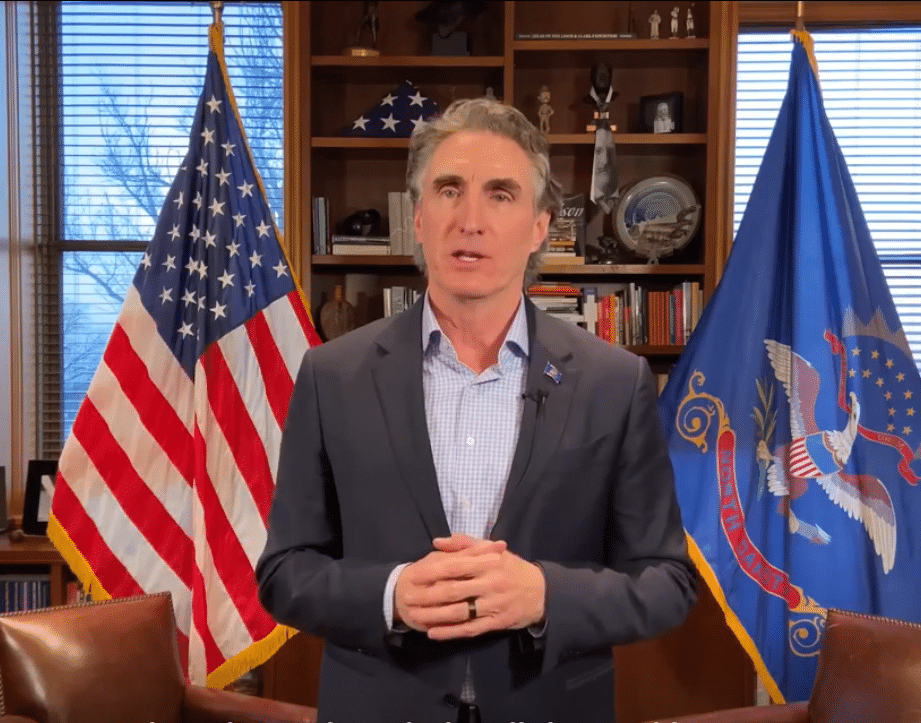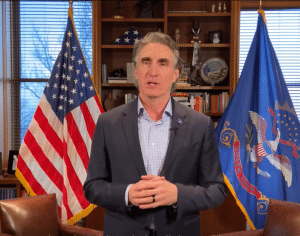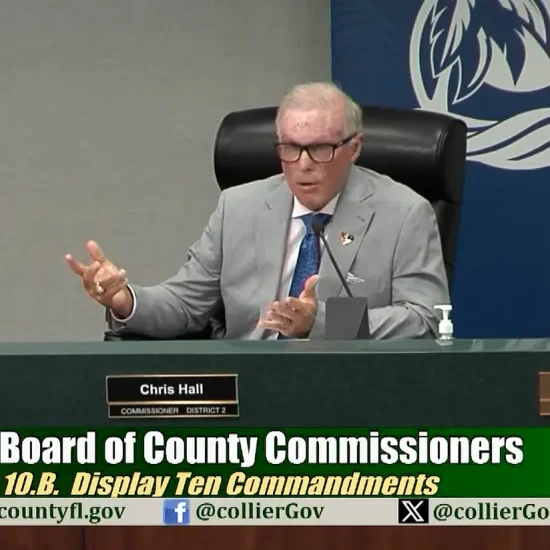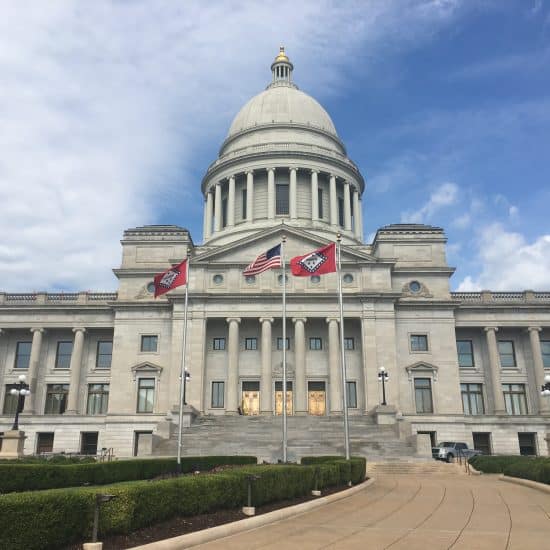
BISMARCK, N.D. (AP) — North Dakota Gov. Doug Burgum signed a measure Friday (April 16) aimed at shielding schools and teachers from lawsuits arising from posting the Ten Commandments in classrooms. The Republican’s endorsement of the bill comes after attorneys and school officials warned the legislation is unconstitutional and would spur costly and unwinnable legal fights.
The bill received broad support in both Republican-led legislative chambers, with a 76-16 vote in the House and a 34-13 vote in the Senate. Hoping to fend off legal challenges, the House amended the bill with a requirement that the Ten Commandments be included in a display with other historical documents.

North Dakota Gov. Doug Burgum
In a statement, Burgum said the bill “clarifies the existing authority in state law that allows a school to display a religious object or document of cultural, legal, or historical significance together with similar documents.”
“This law supports local control and gives school districts full control over whether to display any religious objects or documents,” he added.
The American Civil Liberties Union, which has been tracking the North Dakota legislation, has said that passage of the legislation would invite litigation. The organization said that not a single court has upheld the posting of the Ten Commandments in public schools, even if they are displayed with other material.
Attorneys and education advocates testified earlier that the bill likely violates the clause in the First Amendment of the U.S. Constitution that prohibits the establishment of religion by the government.
Proponents of the legislation said it is intended to promote moral behavior in schools, and that that the United States was founded on Ten Commandments’ principals. They also said if the legislation would ever reach the U.S. Supreme Court, it could be viewed more favorably by the court because of its shift to the right following the appointment of three conservative justices by former President Donald Trump.
The measure also is intended to protect schools from litigation that could arise from students’ reciting the Pledge of Allegiance. Opponents said that part of the bill is moot because it already is allowed, but not mandatory.





